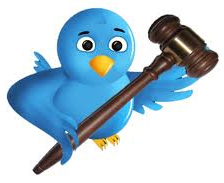After years of contractual entanglements, public disputes and strategic reinvention, Taylor Swift has achieved something few global recording artists have: She now owns the master recordings of her entire musical catalog.
Articles Posted in IP Ownership
A NFT Primer on Potential IP Ownership Legal Issues
Carolyn Toto recently joined host Joel Simon on his Industry Insights podcast continue the discussion of non-fungible tokens, related IP ownership issues and more.
Joel Simon: Our discussion today is part of a series on non-fungible tokens, known as NFTs. We will take a look at some specific issues that are somewhat unique to NFTs, and try to give you, our listeners, some interesting things to watch out for as you wade into this relatively new space. Carolyn, with the large sums of money involved in many NFT transactions, due diligence and proper transaction execution must be critical factors, yet I’ve heard about buyers getting tripped up on things that, once you hear about them, seem obvious. Can you shed some light on this for us?
The People Have Spoken. Chappelle Is Back!
 On November 24, 2020, Dave Chappelle posted his “Unforgiven” stand-up set to Instagram and publicly called out Viacom and Comedy Central over the streaming rights and revenues from his early-2000s hit, Chappelle’s Show. As we previously explained, rather than litigating what seemed to be Viacom-friendly contract language, Chappelle was taking the issue to “his real boss”—his fans—by calling for a boycott of the show on two major streaming platforms: Netflix and HBO Max. By the end of 2020, both platforms had taken the show down. Chappelle hoped to use the boycott as leverage to renegotiate a better deal.
On November 24, 2020, Dave Chappelle posted his “Unforgiven” stand-up set to Instagram and publicly called out Viacom and Comedy Central over the streaming rights and revenues from his early-2000s hit, Chappelle’s Show. As we previously explained, rather than litigating what seemed to be Viacom-friendly contract language, Chappelle was taking the issue to “his real boss”—his fans—by calling for a boycott of the show on two major streaming platforms: Netflix and HBO Max. By the end of 2020, both platforms had taken the show down. Chappelle hoped to use the boycott as leverage to renegotiate a better deal.
As a Response to COVID-19, 3D Printing Provides Some Wins … and Some Compelling Intellectual Property Questions
 As the world collectively struggles to adapt to the “new normal,” it is clear that one of many challenges facing businesses and individuals is how to best adapt to supply chain disruptions. A key example of where these shortages are being reported is in the health care sector, which is experiencing a limited (or non-existent) supply of personal protective equipment (PPE) for health care workers and ventilators for patients. Not only have these shortages placed a strain on those treating patients who have fallen ill from COVID-19, but it has also frustrated efforts to fully identify who may or may not be infected. As one example, in a recent interview conducted by The Indicator podcast, it was reported that limited supplies of PPE to protect workers during patient sample collections were in turn limiting the ability of the University of Washington’s health center to test patients for coronavirus.
As the world collectively struggles to adapt to the “new normal,” it is clear that one of many challenges facing businesses and individuals is how to best adapt to supply chain disruptions. A key example of where these shortages are being reported is in the health care sector, which is experiencing a limited (or non-existent) supply of personal protective equipment (PPE) for health care workers and ventilators for patients. Not only have these shortages placed a strain on those treating patients who have fallen ill from COVID-19, but it has also frustrated efforts to fully identify who may or may not be infected. As one example, in a recent interview conducted by The Indicator podcast, it was reported that limited supplies of PPE to protect workers during patient sample collections were in turn limiting the ability of the University of Washington’s health center to test patients for coronavirus.
Creators Take Care: SCOTUS Adjusts the Timing of the Copyright Registration Tango
 Fortnite is the most popular video game in the world. So popular that it was last year’s highest earning video game, grossing more than $2.4 billion in 2018 alone. So popular, in fact, that its fans successfully convinced Sony to reverse its longstanding policy against cross-platform gaming, thus allowing PlayStation Fortniters to play with their PC, mobile and other console-owning friends. Fortnite is also free.
Fortnite is the most popular video game in the world. So popular that it was last year’s highest earning video game, grossing more than $2.4 billion in 2018 alone. So popular, in fact, that its fans successfully convinced Sony to reverse its longstanding policy against cross-platform gaming, thus allowing PlayStation Fortniters to play with their PC, mobile and other console-owning friends. Fortnite is also free.
Can a Reporter’s Twitter Account Be a Newspaper’s Trade Secret?
 Does one person’s Twitter account a trade secret make? A newspaper in Virginia apparently thinks so. This past week, the owner of The Roanoke Times sued former Virgina Tech sports reporter Andy Bitter under the federal Defend Trade Secrets Act, among other things, because he refused to give up the login information for a Twitter account.
Does one person’s Twitter account a trade secret make? A newspaper in Virginia apparently thinks so. This past week, the owner of The Roanoke Times sued former Virgina Tech sports reporter Andy Bitter under the federal Defend Trade Secrets Act, among other things, because he refused to give up the login information for a Twitter account.
A Good Rule of Thumbnail? Pay the Licensing Fee.
You hire a web designer to create a website for your business. In the background, the designer uses stock photography to beautify the page. Stock photography comprises copyrighted images—often presented in searchable online databases—that can be licensed for specific uses. This avoids the need to hire an actual photographer. The designer assures you that he has the rights to use the stock images, or more specifically, he has properly obtained a license to use the photos. Does that mean you can use those photos in your website without violating any copyrights in the photos? The answer is most likely “no.”
Social Media & Games: 2013 Year in Review
2013 was an incredibly active year for social media legal issues. Below are selected highlights on some of the more interesting legal issues that impacted social media, along with links to reference material relating to the topics.
1. Virtual Currency/Bitcoin
FinCEN Virtual Currency Guidance and Enforcements – FinCEN published legal guidance on virtual currency making clear that existing regulations regarding money transmitter and anti-money laundering laws apply to certain virtual currency activities. Shortly after issuance of the guidelines,
a wave of enforcements shut down non-complying entities. [BLOG]
Congressional Hearings on Virtual Currency – Congressional hearings were surprisingly more friendly and receptive of Bitcoin and other virtual currencies.
2. Privacy – Guidance and Enforcements
COPPA – The FTC issued new guidance
and FAQs for children’s online protection due to evolving technology and changes in the way children use and access the Internet, mobile devices and social media.
CA Privacy Law
– California passed new privacy laws.
3. Intellectual Property/Patents
Patents – The number of social media patent filings continued to increase. The America Invents Act (AIA) fully kicked in, providing a greater ability to challenge patents believed to be invalid without going through district court litigation. The Fast Track
process to get patents issued more rapidly (often in less than a year)
continued.
Ownership of Social Media Accounts and Followers – Despite a number of cases (including ones involving LinkedIn and Twitter) relating to ownership of social media accounts, the law remained murky and fact specific.
This uncertainty can be avoided by proper attention to social media policies before issues arise.
4. Employment Law and Social Media
National Labor Relations Board (NLRB) – The NLRB continued to issue surprising guidance and decisions on social media usage. In many cases, some or all provisions of employers’ policies governing the use of social media by employees were found to be unlawful. [BLOG] The NLRB affirmed that workers have the right to discuss work conditions freely without fear of retribution,
whether the discussion takes place in the office or on Facebook. But later in the year it actually found some uses of social media for employment (firing) decisions to be okay.
Employer Access to Social Media User Names and Passwords – By year end, 36 states had passed or initiated legislation prohibiting employers from requesting personal social media account information or passwords in connection with employment decisions.
National Conference of State Legislatures Report – Some states have similar legislation to protect students in public colleges and universities.
5. Online Gaming
First mover states
forged forward with online gambling.
· Nevada – Legalized online poker and granted its first licenses for interactive gaming.
· New Jersey – In February, passed legislation (signed into law by Governor Chris Christie) allowing on-line wagering. Subject to certain limitations, licensed operators are permitted to offer online versions of a wide variety of games currently permitted in Atlantic City casinos (e.g., roulette, craps, black jack, and slots).
· Delaware – On October 31, launched what Delaware officials call a “full suite” of internet gambling.
Zynga – In September,
Zynga withdrew its bid for a gambling license in Nevada
Federal Gambling Legislation
– The prospects for a federal law for online gambling remain elusive.
6.
Mobile Health Applications
FDA Guidance
– The Food and Drug Administration (FDA) issued guidance that focused on applications that present a greater risk to patients if they do not work as intended or that cause smartphones or other mobile platforms to impact the functionality or performance of traditional medical devices.
FTC Guidance
– The FTC issued guidance in April focusing on truthful advertising and privacy.
7.
Gamblification/Sweepstakes
Florida prohibited
gaming promotions in a cause-related marketing campaign (where purchase of a good or service benefits a charitable cause).
Internet Sweepstakes Café Conviction in Florida – Lawyer Kelly Mathis was convicted on 103 of 104 counts related to illegal gambling based on his role in Internet Sweepstakes Cafés in Florida. He faces up to 30 years in prison. CA, OH, SC and other states moved quickly to shut down similar operations.
8.
Equity-based crowd funding legalized in the United States
SEC Rules
– In October, the SEC voted unanimously to propose rules under the JOBS Act to loosen the rules and permit companies to offer and sell securities through equity crowd funding.
Note:
Equity crowd funding is much like crowd funding, which has been popularized in the United States through sites such as Kickstarter and Indiegogo. The difference is that instead of individuals supporting campaigns through donations, numerous investors are purchasing small stakes in startups or small businesses.
Critics Emerge
– Critics of equity crowd funding worry that the industry will be rife with Ponzi schemes or that having too many investors will hurt startups’ prospects for future funding.
Pillsbury originally discussed this in a January 2012 client alert and March 2012 Blog Post.
9.
Endorsements
FTC Enforcements on Fake Endorsements – In February, the FTC permanently stopped a fake news website operator that allegedly deceived consumers about acai berry weight loss products. The settlements will yield more than $1.6 million and conclude a sweep against online affiliate marketers and networks. The sites falsely claimed endorsements from ABC, Fox News, CBS, CNN, USA Today and Consumer Reports.
Many companies’ understanding of and compliance with the FTC Endorsement Guidelines remains lacking, yet enforcements continue.
10.
Wearable Computing Lawsuit
Google Glass Liability? – In what may be a foreboding development, a California woman received a traffic ticket for wearing Google Glass while driving. Many states have broad distracted-driving laws or bans on certain monitors that may apply to Google Glass and similar wearable computing devices.
Suit Over Ownership of Twitter Followers Settled
 We previously reported on the lawsuit over ownership of Twitter followers, when an employee left PhoneDog and changed the twitter handle of an account that had been used to tweet to PhoneDog customers. That case has now settled on confidential terms, but it appears the employee came out ahead. According to a statement from the employee, Noah Kravitz: “I’m very glad to have worked this out between us,” Kravitz said in a statement. “If anything good has come of this, I hope it’s that other employers and employees can recognize the importance of social media … good contracts and specific work agreements are important, and the responsibility for constructing them lies with both parties.”
We previously reported on the lawsuit over ownership of Twitter followers, when an employee left PhoneDog and changed the twitter handle of an account that had been used to tweet to PhoneDog customers. That case has now settled on confidential terms, but it appears the employee came out ahead. According to a statement from the employee, Noah Kravitz: “I’m very glad to have worked this out between us,” Kravitz said in a statement. “If anything good has come of this, I hope it’s that other employers and employees can recognize the importance of social media … good contracts and specific work agreements are important, and the responsibility for constructing them lies with both parties.”
Game Cloning Can be Stopped!
 A federal court recently found copyright infringement based on a developers copying of aspects of the popular Tetris game, even though the code itself was not copied. This ruling confirms that IP can be used to effectively prevent certain cloning practices that are prevalent with online games. While this case focused on copyright infringement, a passing note by the court highlights how patents can be instrumental to a comprehensive IP strategy as well.
A federal court recently found copyright infringement based on a developers copying of aspects of the popular Tetris game, even though the code itself was not copied. This ruling confirms that IP can be used to effectively prevent certain cloning practices that are prevalent with online games. While this case focused on copyright infringement, a passing note by the court highlights how patents can be instrumental to a comprehensive IP strategy as well.
In this case, Tetris sued Xio Interactive Inc. over its game Mino. Mino is a falling block game which incorporates game-play rules similar to Tetris, as well as utilizing a similar playing area and geometric block combinations. In its opinion, the court stated that game developers are free to use others’ ideas, but not the expression of those ideas. The court noted that the idea-expression dichotomy in the video game world is “simple to state- copyright will not protect an idea, only its expression – but difficult to apply, especially in the context of computer programs.”
The court summarized the law by stating generally that game mechanics and rules are not entitled to copyright protection, but courts have found expressive elements copyrightable, including game labels, design of game boards, playing cards and graphical works. Significantly however, the court noted that game mechanics and other functional game features can be patented.
The court determined that Xio did more than just incorporate Tetris‘ underlying rules in Mino. In looking at the similarity of the look and feel of the two games, the court stated that “[t]here is such similarity between the visual expression of Tetris and Mino that it is akin to literal copying” regardless of the fact that Xio did not actually copy the underlying Tetris code.
If you are a game developer and want to maximize your ability to shut down clones, it is critical to have a comprehensive IP strategy that incorporates both patents and copyrights. If you rely just on copyright, a more skillful game cloner can change the expressive elements enough to avoid copyright infringement. But if you patent core mechanics of your novel game, you can prevent others from copying that functionality regardless of how different they make the expressive elements.
 Internet & Social Media Law Blog
Internet & Social Media Law Blog


